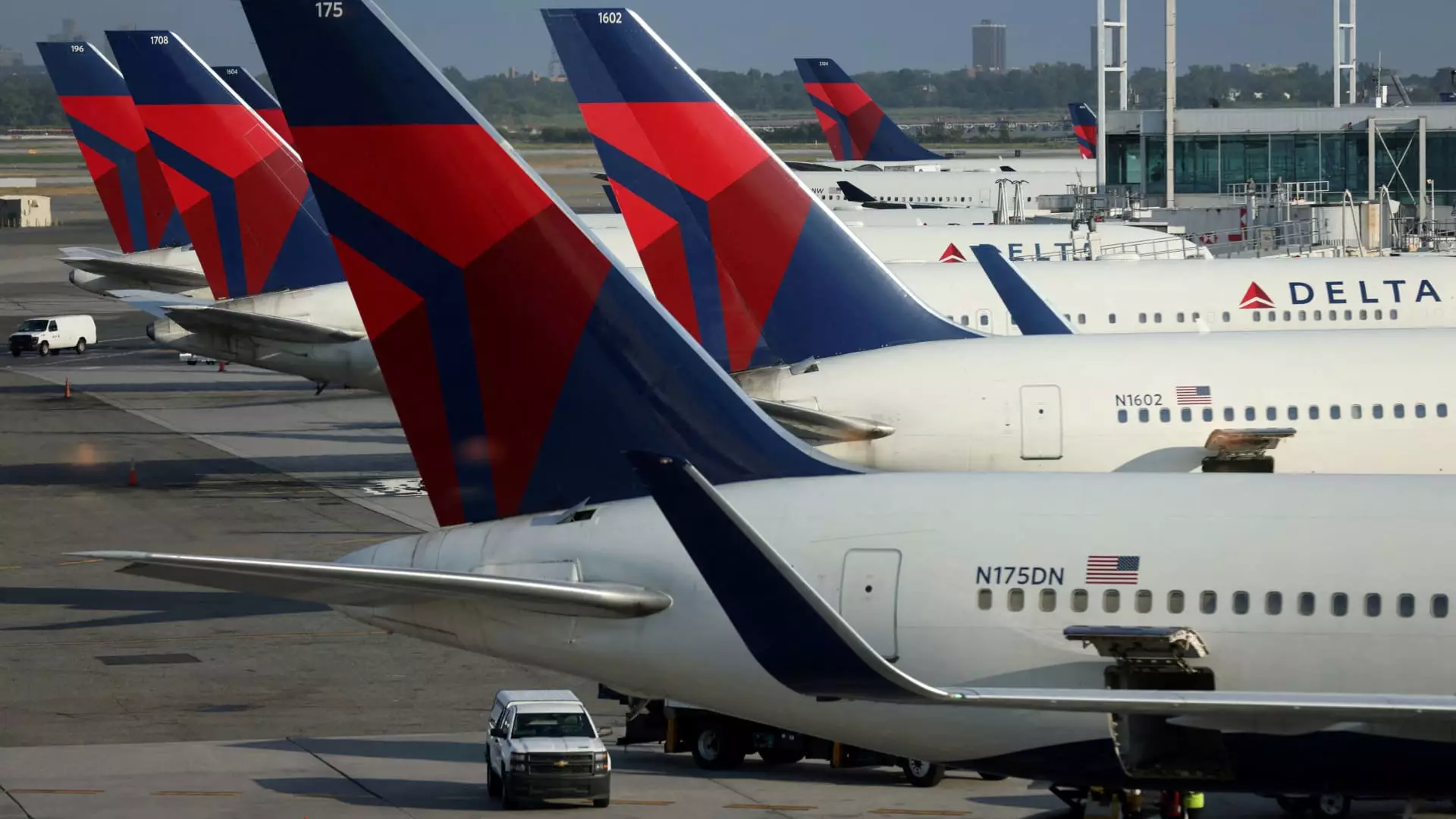In a development that has raised eyebrows in the tech and aviation industries, Delta Air Lines recently initiated a lawsuit against cybersecurity company CrowdStrike. The lawsuit, filed in Georgia, revolves around allegations of breach of contract and negligence, following a disastrous software update in July that incapacitated numerous computers within Delta’s system. This incident led to the cancellation of approximately 7,000 flights, resulting in an astounding revenue loss of $380 million for the airline, alongside additional costs amounting to $170 million. The repercussions of the incident reveal not just financial losses but also broader implications for operational reliability and customer trust in Delta’s services.
Delta’s complaint is particularly scathing, asserting that CrowdStrike’s failure to follow rigorous testing and certification protocols contributed directly to the chaos that ensued. According to Delta, the flaws in the software update, which specifically impacted computers utilizing Microsoft’s Windows operating system, could have been identified and rectified had proper testing been carried out on just one device prior to deployment. This raises critical questions regarding the accountability of software vendors in ensuring the reliability of their products, especially in sectors where their systems have life-altering implications, such as aviation.
CEO Ed Bastian’s remarks underline the gravity of the situation, as he emphasized the expectation of being fully compensated for the havoc that followed. This sentiment reflects a broader industry concern regarding the responsibilities of technology firms, particularly in how their products affect other businesses.
Legal Implications and Industry Reactions
In hiring legal heavyweight David Boies and his firm, Boies Schiller Flexner, Delta is demonstrating its seriousness in pursuing damages that not only encompass lost revenue but also cover litigation costs and potential punitive damages. This legal action highlights the increasing necessity for businesses to safeguard themselves against the ramifications of technology partners’ missteps.
CrowdStrike, facing severe backlash, has acknowledged the incident and has issued an apology, indicating a commitment to reforming its internal practices to mitigate similar occurrences in the future. However, it remains to be seen whether these reparative measures will be sufficient to reestablish trust and confidence among its clients.
As this lawsuit unfolds, the incident serves as a stark reminder of the vulnerabilities inherent in our interconnected systems. The aviation industry, which heavily relies on technology for safe and efficient operations, must prioritize collaboration with software vendors to ensure rigorous testing and accountability measures are in place.
Moreover, major corporations like Delta Air Lines will increasingly demand higher standards from their technology partners. This incident might catalyze industry-wide changes in software development practices, focusing on enhanced testing protocols to avert future disasters that could compromise not just revenue, but also safety and public trust. The outcome of this case could not only redefine Delta’s relationship with CrowdStrike but also set a precedent that shapes the industry’s approach to technology risk management in the years to come.

